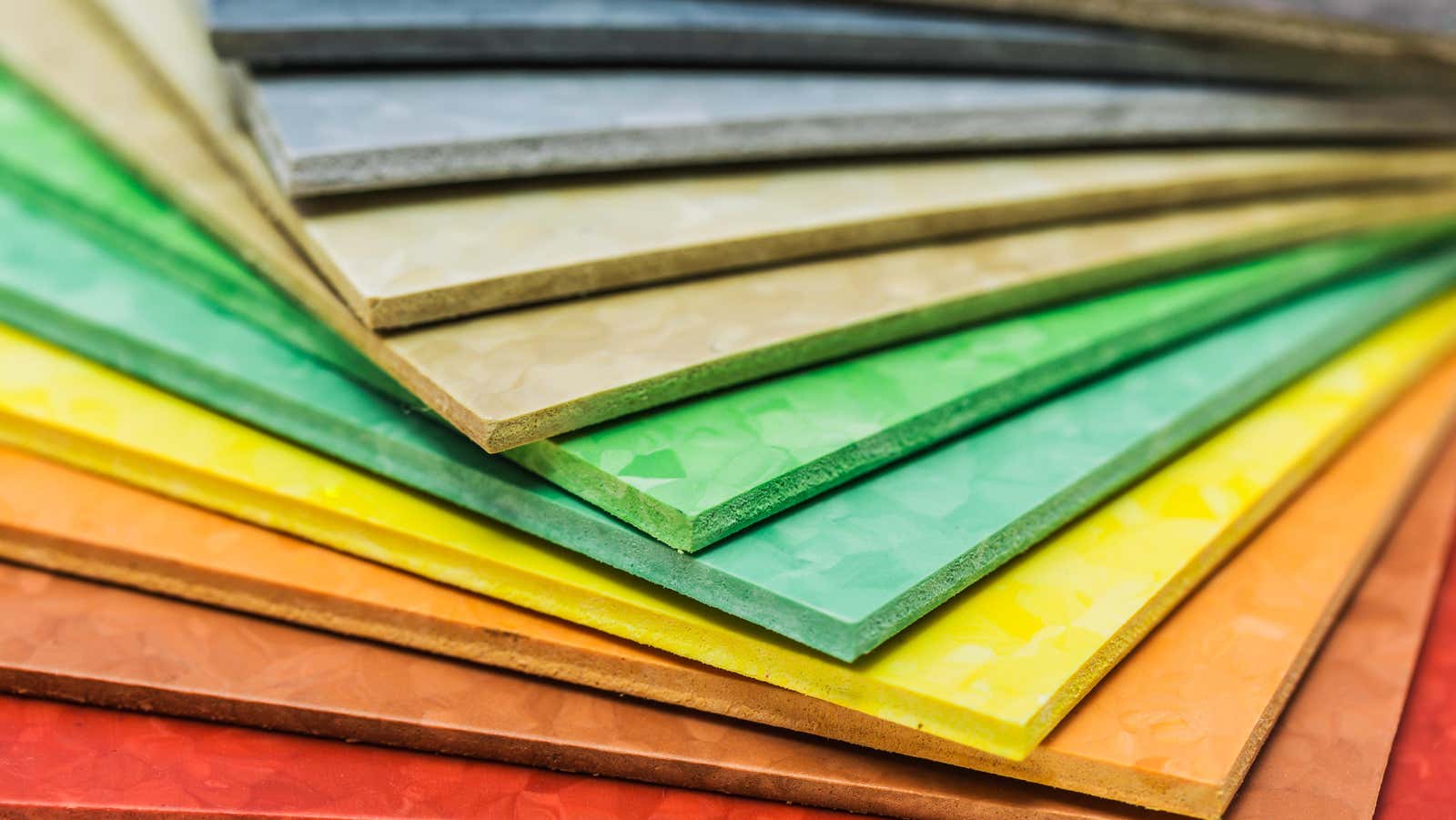The Difference Between Linoleum and Vinyl Flooring

While it may seem like linoleum and vinyl flooring are the same thing, they are actually very different in terms of cost, durability, ease of installation, and a host of other factors. That’s why it’s important to know the pros and cons of each type of flooring before deciding which one to install in your home. Here’s what you need to know about the differences between linoleum and vinyl flooring.
The difference between linoleum and vinyl flooring
To determine if linoleum or vinyl flooring is right for a particular room in your home, it’s helpful to know how the materials differ. Here’s some background on each:
Linoleum
- Invented in 1860
- While modern synthetic versions are available, traditional linoleum is made from all-natural and biodegradable materials, including linseed oil, pine rosin, limestone, cork flour, wood flour, and jute.
- Sheet linoleum costs $5 to $7 per square foot.
- Linoleum tiles cost $3 to $5 per square foot.
- Serves an average of 20 to 40 years
- Harder and harder to cut than vinyl, but also more durable
- Water resistant, but more susceptible to water damage than vinyl.
- Needs to be sealed every 3-10 years to maintain water tightness.
- More heat resistant than vinyl
- Natural linoleum does not contain volatile organic compounds (VOCs).
Vinyl floors
- Invented in the 1920s
- synthetic; Made primarily from polyvinyl chloride (PVC) resin
- Sheet vinyl costs between 50 cents and $2 per square foot.
- Vinyl tile costs about $3.50 per square foot.
- Lasts 10 to 20 years
- Waterproof; resistant to mold and mildew
- Available in more colors and patterns than linoleum
- More flexible and easier to cut than linoleum
- Easier to install than linoleum
How to decide which flooring to use
So which flooring should you choose? Both are easy to clean and are popular for kitchens and bathrooms. If you have a poorly ventilated bathroom that tends to get too damp, vinyl may be the best option because it’s waterproof. Linoleum, on the other hand, is more heat resistant, so it may be a better choice for a kitchen.
When considering cost, consider whether you’re more interested in saving money up front (vinyl wins in this case) or in the long run (linoleum comes out on top). And while you can technically install both linoleum and vinyl yourself, vinyl flooring is much easier for the less experienced home builder.